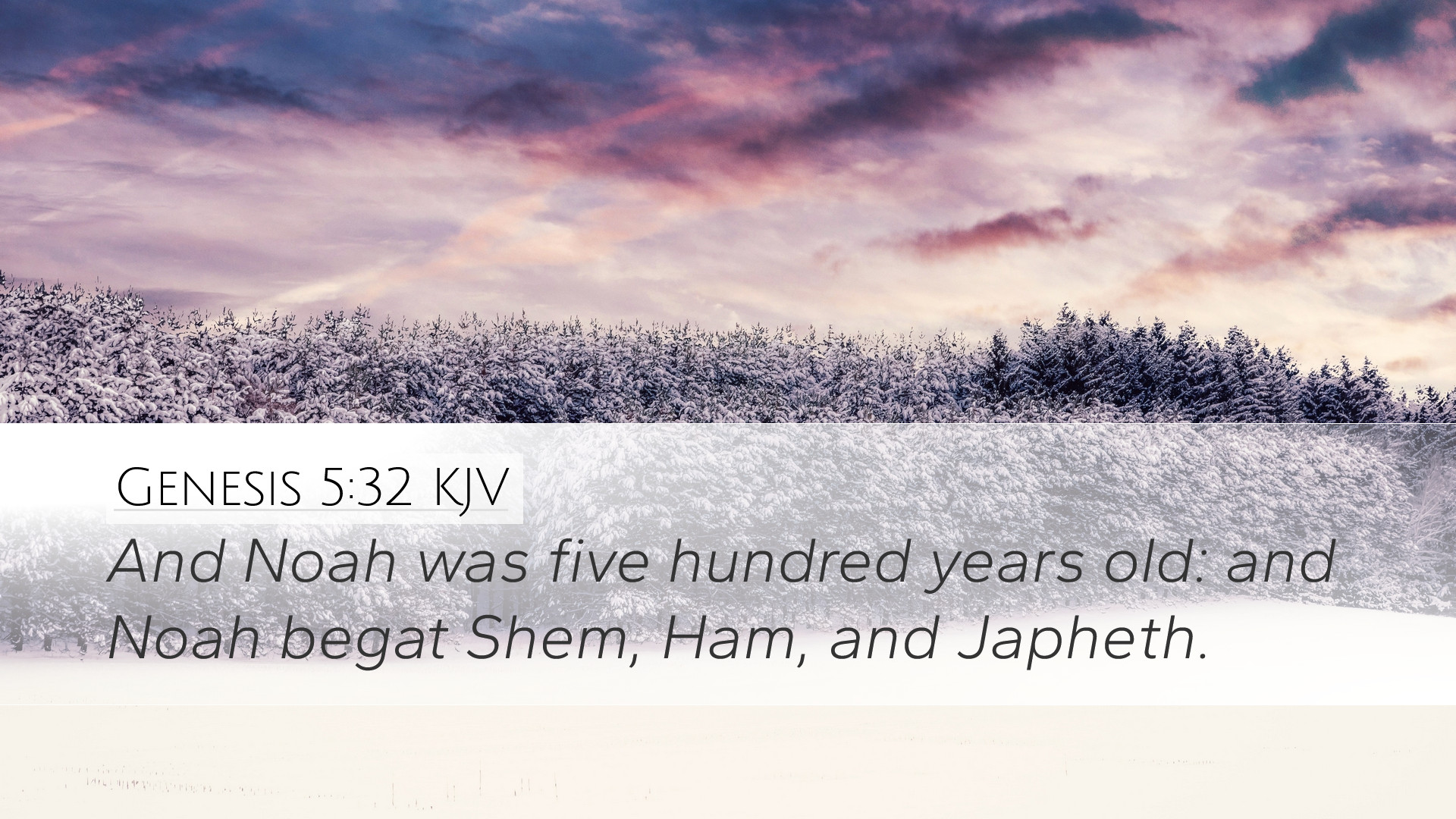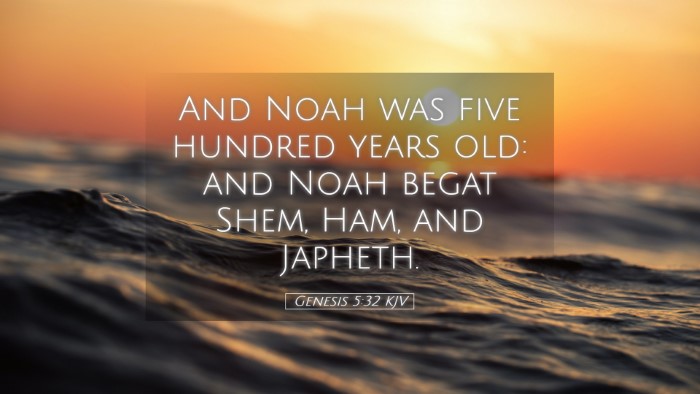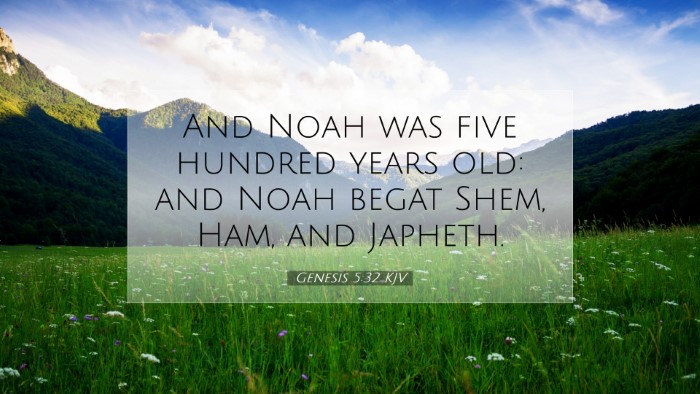Commentary on Genesis 5:32
Verse Context: Genesis 5:32 states, "And Noah was five hundred years old: and Noah begat Shem, Ham, and Japheth."
Introduction
This verse marks a significant point in the genealogical account of the patriarchs leading up to the flood narrative. It provides crucial information about Noah, who is a pivotal figure in the biblical story. Commentaries from respected theologians offer rich insights into the implications and meanings of this verse.
Insights from Matthew Henry
Matthew Henry highlights that the ages of the patriarchs serve to illustrate God’s grace and patience. He suggests that the lengthy lifespans of individuals like Noah reflect God's mercy, allowing ample time for repentance before the divine judgment through the flood. Henry emphasizes that Noah’s age signifies the beginning of a new chapter in biblical history, moving towards a catastrophic yet redemptive event.
Albert Barnes’ Perspective
Barnes points out the importance of Noah in the genealogical line, noting that he was specifically chosen by God to preserve humanity and creation. He observes that the naming of Noah's sons at this advanced age speaks to the significant role they will play in future generations. Barnes underscores that Shem, Ham, and Japheth represent not just a familial lineage but the ethnic divisions that will arise post-flood.
Adam Clarke’s Remarks
Adam Clarke provides a detailed examination of the age of Noah. He posits that Noah's age (500 years) at the birth of his sons is noteworthy and suggests that it symbolizes maturity and preparation to undertake the monumental task of building the Ark. Clarke discusses the meaning of the names of Noah’s sons, indicating how they foreshadow the roles their descendants will play in the unfolding narrative of mankind after the flood.
Theological Reflections
- Divine Patience and Grace: The long lifespans in Genesis reflect God's enduring patience with humanity, giving generations the opportunity to turn toward Him.
- Preservation through Judgement: Noah's election signifies a divine choice for preservation, emphasizing that God's plans often include divine deliverance from impending judgment.
- Symbolism of Names: The names of Noah's sons suggest the future expansion of nations and the divergent paths humanity will take, indicating the fulfillment of God's covenantal promises.
Application for Contemporary Readers
This passage invites pastors, students, and scholars to reflect on God’s active role in history and how He prepares individuals for His purposes. It calls for a recognition of the responsibility that comes with divine calling. Believers are encouraged to assess their own lives in light of Noah’s example of faith and obedience amid a corrupt world.
Conclusion
Genesis 5:32 serves as a crucial pivot in the archetypal story of God's interaction with mankind. By examining the insights of Matthew Henry, Albert Barnes, and Adam Clarke, we gain a holistic view of the significance embedded within this verse and its implications for understanding divine judgment and mercy.


